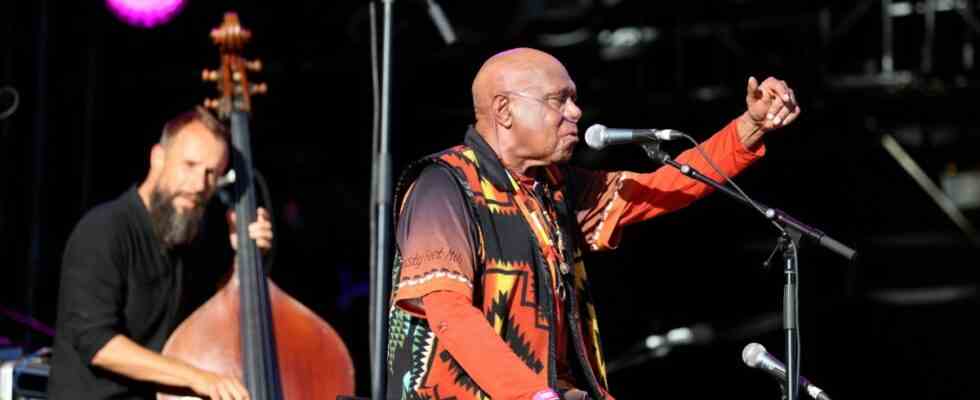It was the song Australia needed. And Archie Roach was the man who could write it and sing it. When the then completely unknown singer – brought on stage by the famous Paul Kelly – presented “Took the children away” in 1989, there was silence in the Melbourne Concert Hall for several minutes. Then the applause rose even louder. Roach struck a chord with Australia.
“The story’s right, the story’s true / I wouldn’t tell lies to you” is how his song begins and tells a story that is right and true, not a lie and that’s why it’s so startling. It was only through Roach’s song that many Australians became aware of what their state had done to the families of their indigenous fellow human beings, who were not even fellow citizens until 1967, until the early 1970s: authorities had systematically snatched the children away from tens of thousands of parents to put them in orphanages and with godparents to “good”, and in the racist spirit of the time that meant: educating white Australians. Labor Premier Kevin Rudd was the first to officially apologize in 2008 for this crime against these now-called “stolen generations.” Roach sang at this ceremony.
He was one of those kids. The logo, under which he later appeared as a singer, describes his origin: Gunggayay, the red-bellied black viper, then encircles Kneeangar, the wedge-tailed eagle. The serpent is totem of the Bundjalung, his father’s people, the eagle is to the Gunditjmara, to which his mother belonged, the creator of their land. Born in 1956, Archie was taken from his parents at the age of two, placed in orphanages and eventually adopted by an immigrant couple from Scotland.
The dichotomy of “acting white, feeling black” almost tore him apart
He never saw his father and mother again. The young Archie loved his godparents, but the dichotomy of “acting white, feeling black,” as the song puts it, tore the teenager apart. When he found out about his mother’s death at 14, he left what wasn’t “home” and embarked on a quest that he almost never survived. For years he lived on the streets, addicted to alcohol, attempted suicide, as he tells in his autobiography – a damaged life that many severely traumatized black Australians have to endure.
In a homeless shelter he met Ruby Hunter, she too a stolen child. They shared their passion to tell in songs what they experienced and suffered. They sang at the protests against the celebrations of the 200th anniversary of the arrival of the English, which turned into a disaster for the indigenous people. Roach was first discovered, and later they would both become successful singers and songwriters – and voices for the rights of Indigenous Australians were heard across the country.
After Ruby Hunter’s untimely death in 2010, Archie Roach has continued without her. Every time he sings “Took the children away,” some of his pain heals, he once said. “The children came back, yes, I came back,” he sings in it. He died on Saturday at the age of 66 in the coastal town of Warrnambool, in a region traditionally owned by the Gunditjmara and created by the Kneeangar.

